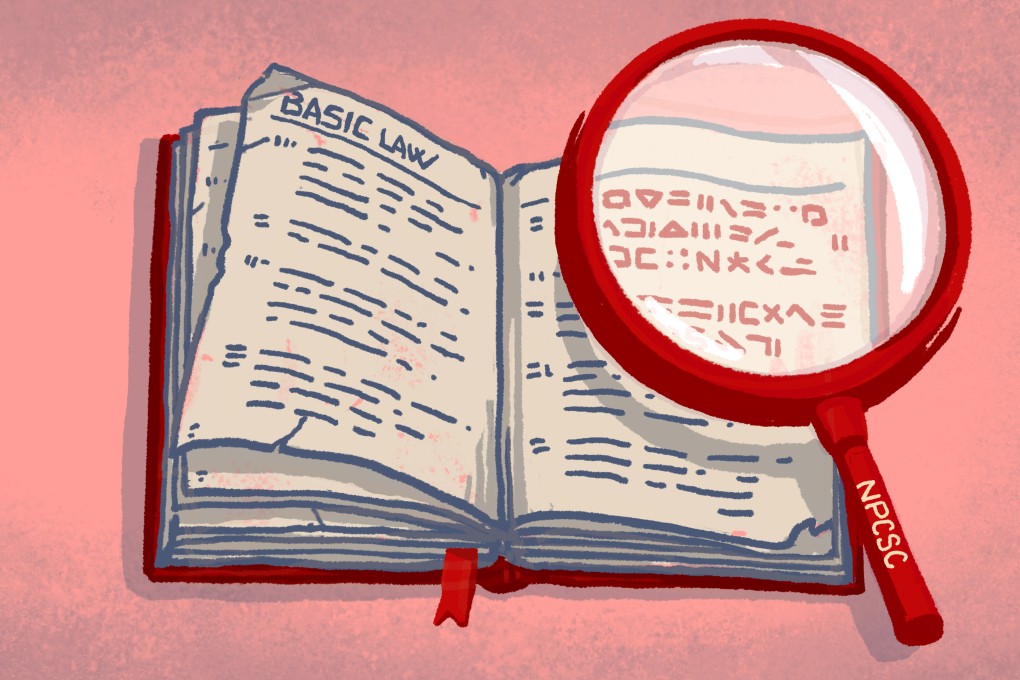My Take | Do Beijing’s interpretations of Basic Law still have a future?
- After the transformative changes that Hong Kong has undergone in recent years, the ongoing use of such interventions is open to question

A Hong Kong judge prepares to deliver a landmark ruling of constitutional significance. But before he can do so, Beijing steps in. It issues a legal interpretation that effectively ties the courts hands and settles the case.
These events, which saw two radical opposition lawmakers disqualified for making offensive remarks while taking their oaths, occurred six years ago tomorrow. It marked the beginning of the central government’s moves to quash Hong Kong’s nascent independence movement and bring the legislature into line.
But it is also significant because this was the last time China’s top legislative body delivered an interpretation of the city’s de facto constitution, the Basic Law. Only once before, between 2005 and 2011, has Hong Kong gone as long as six years without this legal “weapon” being used by Beijing to settle a constitutional dispute in the city in its favour.
There have been five interpretations by the National People’s Congress Standing Committee since Hong Kong returned to China in 1997. All have been controversial. They prompted concerns that the city’s high degree of autonomy was being limited and its judiciary undermined.
The interpretations became part of the legal landscape. But after the transformative changes in Hong Kong in recent years, their future use is open to question.
Much has changed since the last interpretation. Months of civil unrest in 2019 led to the new national security law, mass arrests of opposition figures and the imposition of a “patriots only” political system. Beijing took control.
But this reshaping of the city was achieved through resolutions, decisions and the direct imposition of the security law by the country’s top legislature. Interpretations of the Basic Law took a back seat, amid the use of these more direct means.
